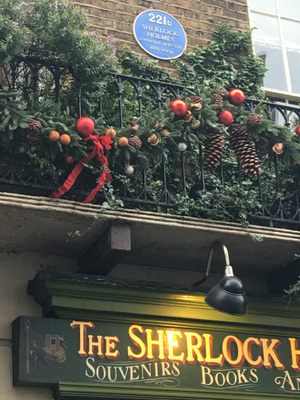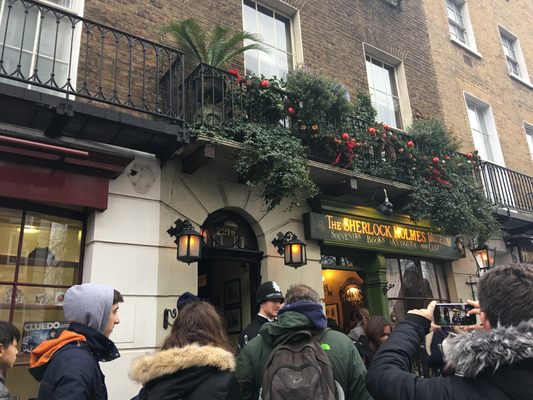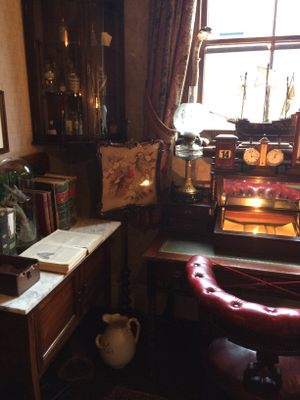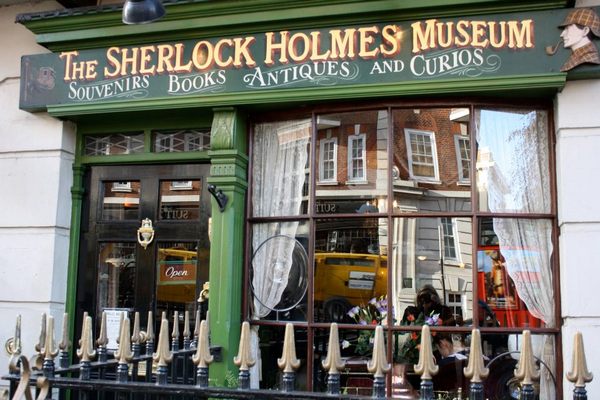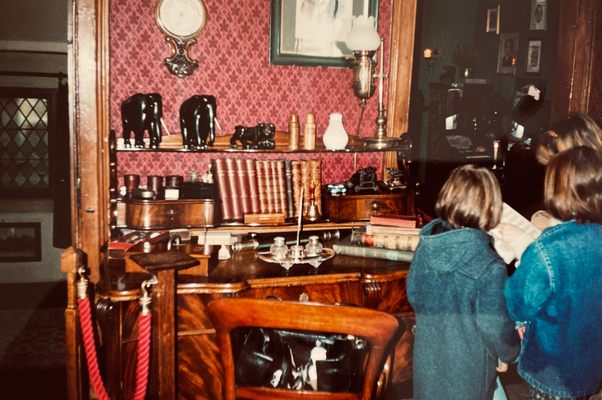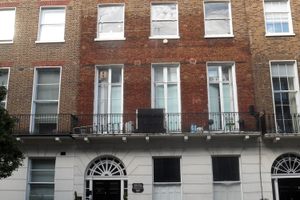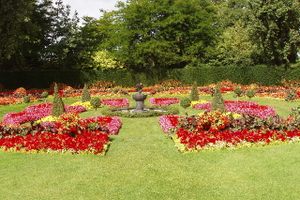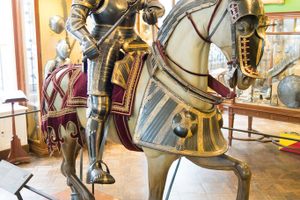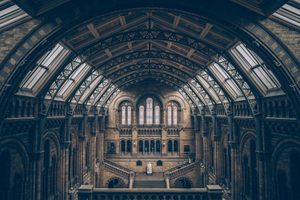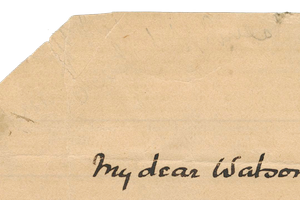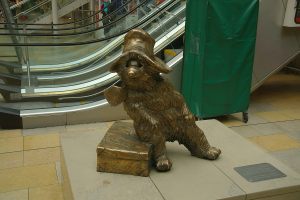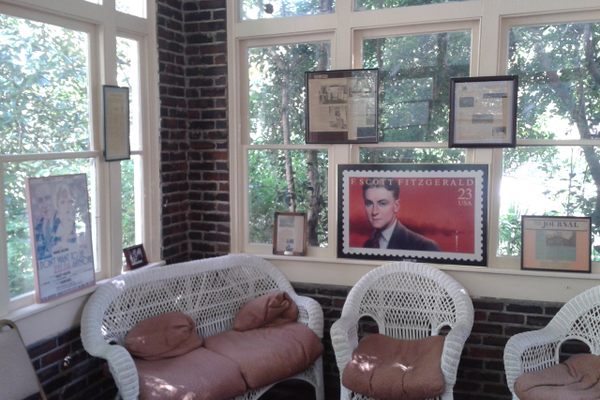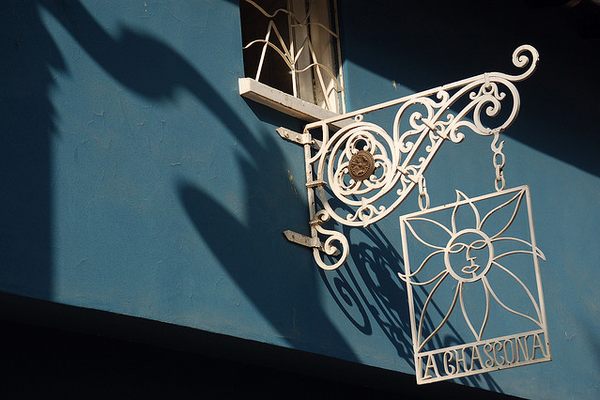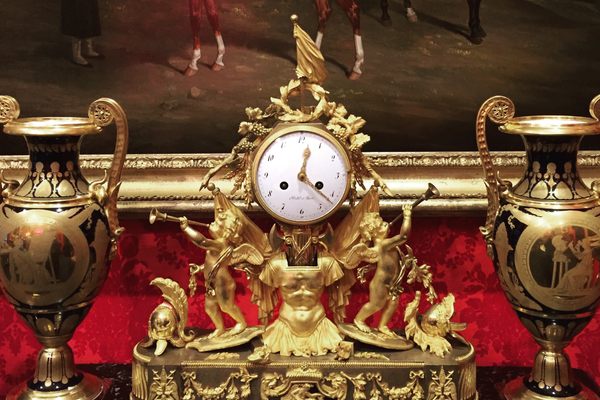About
Beeton's Christmas Annual was a hugely popular Victorian literary magazine. The November 1887 issue featured a story that introduced the world to one of the most famous detectives and street addresses in fiction; Sir Arthur Conan Doyle's "A Study in Scarlet" marked the first appearance of consulting detective Sherlock Holmes, and his friend Dr. John Watson.
Watson recounts how, "We met next day as he had arranged, and inspected the rooms at No. 221B, Baker Street, of which he had spoken at our meeting. They consisted of a couple of comfortable bed-rooms and a single large airy sitting-room, cheerfully furnished, and illuminated by two broad windows."
Located near Regent's Park in London, the Baker Street of the 1880s was largely made up of Georgian townhouses. But at the time Conan Doyle was writing, the street numbers didn't run as far as number 221. Presumably, Conan Doyle didn't want an actual home to become affected by his popular stories.
But when Baker Street was extended northwards in the 1930s, it created an actual 221B. It was given to an Art Deco bank building owned by the Abbey National Building Society. Almost immediately the Abbey National started receiving both fan mail and genuine letters asking for help from the bohemian consulting detective. The volume of letters was so great that the Abbey National hired a full-time staff member to deal with all the correspondence.
In 1990 the Sherlock Holmes Museum opened on Baker Street, albeit a few doors down from the building society, at numbers 237-241. The museum faithfully recreated the living quarters of Holmes and Watson, even down to the exact 17 steps leading up to the sitting room. Immaculately decorated and furnished with everything from Holmes' violin resting in a chair by the fireplace, his collection of books on beekeeping, to Dr Watson's handwritten notes, it gives the impression that Holmes and Watson had just left 221B on a pressing case, leaving their rooms perfectly preserved.
Indeed, the museum purposely went out of its way, perhaps mischievously, to give the impression that Holmes and Watson were actual people. All over London, blue circular plaques adorn the walls where famous people have resided. These are strictly limited to real people; however, the museum created a similar-looking plaque for its exterior bearing the inscription, "Sherlock Holmes, Consulting Detective, 1881-1904." The fiction was given further weight when an opening ceremony given by the leader of Westminster City Council in 1990 bestowed upon the museum the official address of 221B.
A dispute immediately arose with the Abbey National over the famous address. Not only were there now two 221B's on Baker Street, but the museum's one put the street numbers out of order. The feud wasn't settled until the Abbey National vacated its building in 2005, and the museum was given sole rights to the famous number. But still today Baker Street is the only street in London that has a house number that appears out of sequence with the rest of the street.
Today the museum is a bustling tourist attraction in northwest London, with the recent BBC television series Sherlock ensuring that the famous address remains high in the public consciousness. And on the second floor, there is a collection of correspondence which still comes to number 221B Baker Street from all over the world, hoping to secure the services of Sherlock Holmes, Consulting Detective.
The museum consists of three floors, four if one includes the minuscule attic. On the first floor, an actor details the various objects displayed within, as well as a brief history of the world-famous detective. On the second floor, one is allowed to roam free, with the third containing wax figures in tableaus of famous scenes.
Related Tags
Know Before You Go
Given the small space of the museum, there are often long lines waiting to get inside. Going later in the day, the wait is not as long.
Tickets may be purchased online, or in person at the back of the gift shop. Entrance is outside, next ti gift shop.
There is no wheelchair access.
Community Contributors
Added By
Published
March 17, 2015


















